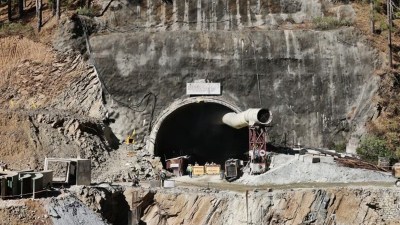Stay updated with the latest - Click here to follow us on Instagram
Mattewara a game changer?
The scrapping of the proposed textile park project signifies the signs of a thinking government responsive to grassroot voices and environmental needs.
 Mattewara forest in Ludhiana. (Express Photo: Gurmeet Singh)
Mattewara forest in Ludhiana. (Express Photo: Gurmeet Singh)The scrapping of the proposed textile park project adjacent to the Mattewara forest and contiguous to River Sutlej signifies the signs of a thinking government responsive to grassroot voices and environmental needs.
No one discounts the need for responsible industrial progression thereby raising employment potential and creating opportunities for the youth of Punjab, but that requires a holistic plan to kick up entrepreneurship, encourage the startup culture and select the correct mix of scalable businesses suitable to Punjab’s ecology and economic needs of the future. Needless to say that industrialists investing in Punjab must think sustainability and thus secure the life of their investments in fields that are the need of the hour. The writing on the wall thus envisages creating a responsible and responsive industrial climate even for existing industry as well that has been governed to date by lackadaisical regulatory authorities and pliable lawmakers.
The need to clean up the rivers of Punjab is imperative to the very existence of the state. Revisiting the voice raised 15 years ago as Chairman WWF-India (Punjab), Gunbir Singh said, “We people have no right to call ourselves Punj-aabis if we cannot keep the remnant rivers of Punjab clean.”
This headlined statement had got an immediate audience with the then Chief Minister. Subsequently, there was little else but lip service. Plugging pollutant flows into rivers, municipal waste and industrial effluent is our pious duty. This responsibility must flow from every citizen up to the arms of governance and its regularity authorities.
With degraded and depleted aquifers, on which an empowered task force is imminent, Punjab is on the precipice of a disaster of its own making and thus needs ample and clean waters to provide for the thirst of its humanity and its food security. Ecological amnesia of successive governments with myopic visions has led to this situation wherein aquifers are going dry and groundwater is polluted.
Equally important is the need for conserving forest cover still surviving our ever-expanding footprint, and thus this cabinet decision is laudable. In fact an energized afforestation plan with native varieties across government and panchayat lands, institutional confines and private holdings shall go a long way in restoring Punjabi ecology.
(The writer is an Amritsar-based environmentalist and chairperson, World Wide Fund For Nature, Punjab)







